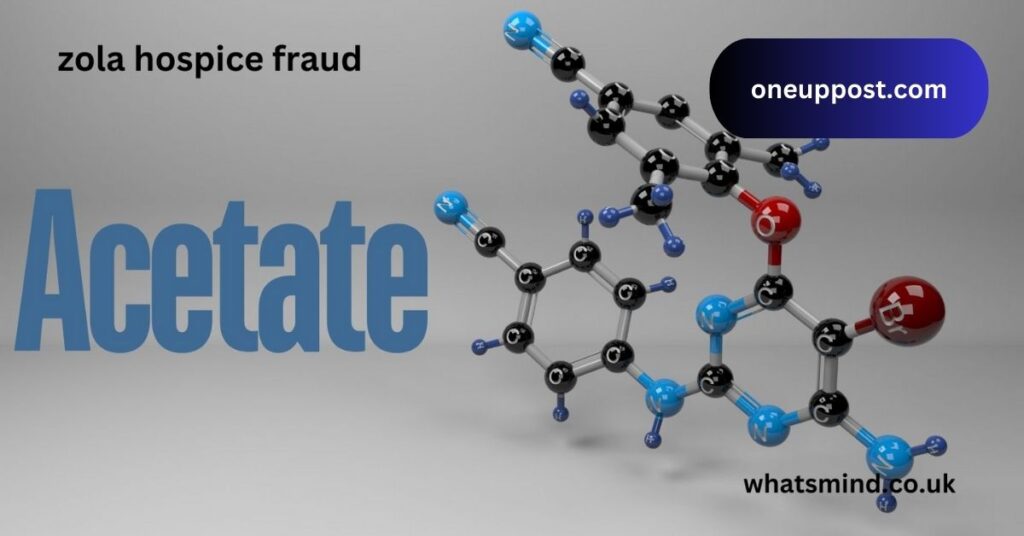Zola Hospice Fraud – Unveiling the Scandal and Its Impact on Healthcare!

Uncovering the truth behind the Zola Hospice fraud scandal might feel like peeling back layers of a very dark onion. I know, because I was just as shocked and disheartened when I first heard about it.
I promise, understanding this case is crucial if you want to grasp how deeply fraud can undermine trust in healthcare services. The story of Zola Hospice is a stark reminder of how some institutions prioritize profit over genuine care.
The Zola Hospice fraud case involves serious allegations of fraudulent practices that compromised patient care and defrauded the healthcare system. Zola Hospice, once a respected provider of end-of-life care, faced accusations of enrolling ineligible patients, falsifying medical records, billing for services not rendered, and offering kickbacks for patient referrals.
In this post, we’ll explore the disturbing details of the Zola Hospice fraud, its impact on patients and families, and what steps can be taken to prevent such breaches of trust in the future.
Introduction to the Zola Hospice Fraud Scandal:
The healthcare industry, known for its dedication to patient care and integrity, was shaken by the revelation of a significant fraud scandal involving Zola Hospice. This case not only exposed fraudulent practices but also highlighted severe ethical breaches that affected countless patients and their families.
Understanding the details of the Zola Hospice fraud is crucial for comprehending its impact on the healthcare system and the measures needed to prevent similar incidents in the future.
Understanding Hospice Care:
Hospice care is a specialized type of care designed to provide comfort and support to individuals in the final phase of a terminal illness.
The primary focus is on quality of life rather than curative treatments, emphasizing pain management, emotional support, and assistance with daily activities. Hospice care aims to ensure that patients live their remaining days with dignity and comfort.
Overview of Zola Hospice:
Zola Hospice was once a reputable name in end-of-life care, serving communities across the United States for over two decades. The organization was known for its comprehensive care programs, which were trusted by thousands of families to provide compassionate and ethical care during difficult times.
However, behind this facade, Zola Hospice was engaged in fraudulent activities that compromised patient care and defrauded the healthcare system.
Comprehensive Overview of Fraud Allegations Against Zola Hospice:
The fraud allegations against Zola Hospice were extensive and deeply concerning. The accusations included:
- Improper Enrollment Practices: Zola Hospice was found to have admitted patients who did not meet the criteria for hospice care. This included individuals with non-terminal conditions or those still undergoing curative treatment.
- Falsifying Medical Records: The organization manipulated patient medical records to create the illusion of eligibility, justifying the provision of hospice services to those who did not require or qualify for such care.
- Billing for Services Not Rendered: Zola Hospice billed for services that were never provided to patients, leading to significant financial fraud.
- Upcoding and Overbilling: The hospice inflated the level of care provided to patients, submitting exaggerated claims to Medicare and other healthcare payers.
- Kickbacks for Patient Referrals: Zola Hospice engaged in illegal practices, offering kickbacks to healthcare providers and individuals in exchange for patient referrals.
Legal Proceedings and Consequences of the Zola Hospice Fraud Case – Key Outcomes and Accountability!
The legal battle against Zola Hospice began when whistleblowers within the organization brought these fraudulent activities to light. Multiple lawsuits were filed, and federal investigations were launched to uncover the full extent of the fraud.
The legal proceedings involved extensive document reviews, witness testimonies, and expert analyses to build a comprehensive case against Zola Hospice.
Several key figures within Zola Hospice were implicated in the fraud case, including senior executives, administrative staff, and healthcare providers. The company faced severe penalties, including:
- Fines and Settlements: Zola Hospice was required to pay over $100 million in restitution to the government and affected patients and families.
- Revocation of Licenses and Closure of Facilities: The organization lost its licenses to operate in several states and was forced to shut down numerous facilities.
- Prosecution of Key Personnel: Top executives and key personnel involved in the fraudulent activities faced legal action, ensuring accountability for their actions.
Impact on Patients and Families:
The most tragic aspect of the Zola Hospice fraud is its impact on patients and families. Vulnerable individuals, already facing the challenges of terminal illness, were denied the quality care they deserved.
Patients experienced substandard care, neglect, and emotional distress, exacerbating their suffering during an already difficult time. Families who trusted Zola Hospice with their loved ones’ end-of-life care felt betrayed and devastated by the fraudulent activities.
Response from the Healthcare Community:
The healthcare community responded to the Zola Hospice fraud with a mix of outrage and resolve. Professional organizations, advocacy groups, and ethical hospice providers condemned the fraudulent activities and called for stricter oversight and regulatory measures to prevent future incidents.
The case sparked a broader discussion about the integrity of hospice care and the need for systemic reforms to restore trust in the industry.
Government and Regulatory Actions:
In response to the fraud allegations, government agencies intensified their oversight of hospice care providers. Regulatory bodies implemented more rigorous audits and compliance checks to detect and deter fraudulent practices.
New legislation was considered to enhance protections for patients and ensure the accountability of hospice organizations. These actions aimed to rebuild public trust and prevent similar fraud cases in the future.
Public Reaction and Media Coverage:
The public reaction to the Zola Hospice fraud was one of shock and dismay. Media coverage played a crucial role in bringing the scandal to light and maintaining pressure on authorities to take action.
Through investigative reporting and personal stories, the media highlighted the human cost of the fraud and the urgent need for reforms. The scandal prompted a broader awareness of the importance of ethical practices in hospice care and the need for vigilance against fraud.
Key Lessons from the Zola Hospice Fraud Case and Essential Preventative Measures:
The Zola Hospice fraud case offers several important lessons for the healthcare industry. It underscores the need for robust oversight, transparent practices, and a strong ethical culture within healthcare organizations.
Implementing these lessons can help prevent future fraud and ensure that hospice care remains a trusted and compassionate service. Key preventative measures include:
- Strengthening procedures for assessing patient eligibility and maintaining accurate medical records.
- Implementing more rigorous auditing and monitoring mechanisms, both internally and externally, to identify and address fraudulent practices effectively.
- Fostering a culture of integrity, transparency, and accountability within healthcare organizations.
- Continuously reviewing and updating laws and regulations governing the healthcare industry to ensure appropriate safeguards are in place.
FAQ’s:
1. What was the Zola Hospice fraud scandal about?
The Zola Hospice fraud scandal involved the organization engaging in fraudulent activities such as improper patient enrollment, falsifying medical records, billing for services not rendered, and offering kickbacks for patient referrals. These practices defrauded the healthcare system and compromised patient care.
2. How did the Zola Hospice fraud affect patients and families?
Patients and families were severely affected by the Zola Hospice fraud. Vulnerable individuals experienced substandard care and neglect, while families felt betrayed by the organization they trusted with their loved ones’ end-of-life care. The emotional and physical toll on patients and their families was significant.
3. What legal actions were taken against Zola Hospice?
Zola Hospice faced multiple lawsuits and federal investigations. The organization was required to pay over $100 million in restitution, lost its licenses in several states, and shut down numerous facilities. Key personnel involved in the fraudulent activities were also prosecuted.
4. How did the healthcare community respond to the Zola Hospice fraud?
The healthcare community responded with outrage and called for stricter oversight and regulatory measures to prevent future incidents. Professional organizations, advocacy groups, and ethical hospice providers condemned the fraudulent activities and emphasized the need for systemic reforms to restore trust in hospice care.
5. What impact did the Zola Hospice scandal have on the healthcare industry?
The scandal highlighted vulnerabilities in the hospice care sector and led to calls for stricter regulatory oversight and legislative reforms. It also emphasized the importance of ethical practices and transparency in healthcare organizations.
Conclusion:
The Zola Hospice fraud scandal serves as a stark reminder of the potential for ethical breaches in the healthcare sector. The fraudulent practices not only defrauded the healthcare system but also caused significant harm to patients and their families.
As the industry works to address the lessons learned from this case, it is crucial to prioritize integrity, transparency, and accountability to restore trust and ensure the well-being of those in need of end-of-life care.





